Patients often consult their doctor with the question of whether it is possible to combine alcohol and antibiotics?
All people have to deal with diseases that can only be overcome with the help of special antimicrobial drugs. The latter, as you know, are quite aggressive drugs, so antibiotic therapy comes with certain limitations, including the use of alcohol.
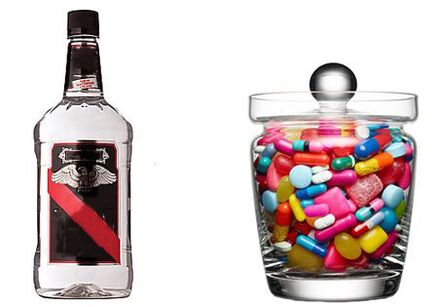
The question of whether alcohol can be taken while taking antibiotics is debatable - you may find conflicting opinions in the media. Earlier on a holiday, the invited guest could easily refuse another dose of booze, citing antibiotic treatment. They sympathized with such a man and were not persuaded to drink. They can now object to it, citing articles in various publications, claiming that alcoholic beverages do not interfere with the recovery process. Where is the truth?
The combination of alcohol and antibiotics is the main risk
When justifying the ban on the concomitant use of antimicrobials and intoxicating beverages, doctors usually explain the restrictions for the following reasons:
- Alcohol blocks (reduces) the therapeutic effect of antibiotics and / or causes unwanted reactions. The effectiveness of the therapy decreases.
- Concomitant use of alcohol and antibacterial agents results in severe toxic damage to the liver and other organs.
How true are these statements?
In fact, consuming drunk beverages can reduce the therapeutic effect of drugs. This is due in particular to the fact that alcohol either destroys the active ingredient itself or makes it more difficult for the antibiotic to bind to pathogen proteins. In addition, alcohol consumption can lead to faster removal of the drug from the body, which reduces its effectiveness or, on the contrary, slows down the removal of drug residues, resulting in unwanted symptoms.
Research and medical practice confirm that both alcohol and antibiotics have depressant effects on the liver.
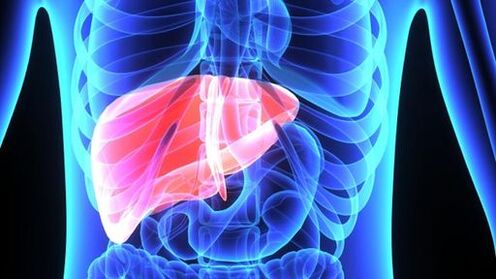
It is no coincidence that the instructions for antibacterial drugs indicate their negative effect on this important organ (some drugs are completely contraindicated in patients with severe liver disease). When alcohol and antibiotics are combined, the liver suffers twice, so doctors ’fears can be fully justified. Incidentally, it is not just the liver that is attacked: the "cocktail" of alcohol with antimicrobial drugs negatively affects the work of the cardiovascular system, it is also dangerous for the pancreas and central nervous system.
Once in the body, alcohol gradually breaks down into carbon dioxide and water. The faster the alcohol is processed, the less harmful it is to the body. But the concomitant use of alcohol and antibiotics slows down the use of alcohol as the antibiotic blocks the enzyme alcohol dehydrogenase, which is needed to break it down. Because of this, a toxic metabolite of alcohol accumulates in the blood, which poisons the body.
What is the basis for the claims of experts who believe that alcohol does not affect the effects of commonly used antibiotics in any way?
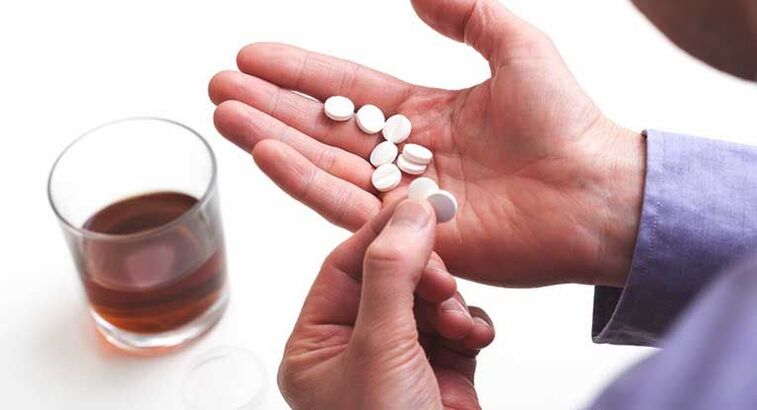
Has the negative effect of alcohol on antibiotics been proven?
To provide a well-founded answer to the question of whether alcohol can be consumed while taking antibiotics, appropriate studies have been performed.
Scientists conducted laboratory experiments on animals and then invited volunteers to the research. They have been offered treatment with antibacterial agents, during which they may consume alcohol. The main goal of the organizers of the experiments was to determine how alcohol (ethanol) affects antibiotics.
Studies have shown that most antibacterial agents are unlikely to interact with alcohol. In other words, it has no significant effect on drugs.
This conclusion was reached on the basis that the effect of antibiotic therapy was the same among patients where alcohol is prohibited and in the group where patients consumed drinking beverages. The rates of drug absorption, distribution, and withdrawal were nearly identical with small differences.
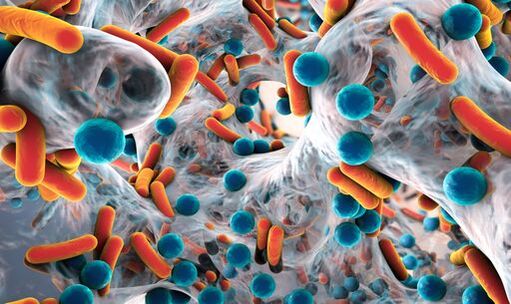
But don’t jump to the conclusion that the combination of alcohol and antibiotics doesn’t pose any danger. Experts pay attention to the following shades:
- The studies were sporadic, making it impossible to speak with 100% certainty about the safety of the combination.
- A small amount of alcohol was used in the experiments (not to mention the intake of uncontrolled, excessive intoxicating drinks).
- The studies performed were limited to the interaction between the drug and ethyl alcohol. No one denied the negative effects of antibiotic + alcohol symbiosis on the liver and the whole body as a whole.
5 reasons why antibioticsthis is impossibleit is not desirable to combine with alcohol
- Alcohol disrupts normal metabolism (nutrient absorption process deteriorates).
- Alcohol increases the concentration of sugar in the blood.
- Alcohol depletes the body and the immune system deteriorates.
- This combination can lead to allergic reactions.
- The outcome of the interaction between alcohol and antibiotics in each case is impossible to predict due to the unique characteristics of the body.
When and why is the use of antibiotics and alcohol completely banned?
Thus, according to the available data, most antibiotics do not change their pharmacological properties and have no significant side effects when consuming beverages containing ethyl alcohol. But there are antimicrobial drugs and those that cannot be combined with intoxicating drinks as such a tandem leads to dangerous consequences.
What are antibiotics that are not compatible with alcohol? This category of drugs includes funds that:
- When consumed concomitantly with alcohol-containing products, they lead to severe metabolic disorders (metabolism). We have already written above that a special enzyme is required to break down ethyl alcohol into safe ingredients. Some antibiotics also need this enzyme to process, but the amount in the body may not be needed to break down both alcohol and the drug, leading to the accumulation of harmful substances (poisoning in the body). To avoid poisoning the body, do not drink alcohol at the same time as such antimicrobials.
- They elicit a disulfiram-like reaction. These are antibiotics that prevent the decomposition of ethyl alcohol and thus contribute to the accumulation of a toxic substance, acetaldehyde. This, in combination with alcohol, results in nausea and vomiting. A similar reaction occurs when antibacterial agents are taken at the same time as alcohol.
The term "disulfiram-like reaction" (also known as a rinsing reaction) is associated with the drug of the same name, disulfiram, which is used to treat alcohol dependence. Therapy is as follows: the patient is implanted with disulfiram tablets through an incision in the subcutaneous tissue that blocks the breakdown of alcohol. If such a person consumes alcohol, he has painful and unpleasant symptoms: palpitations, nausea, vomiting, and so on.
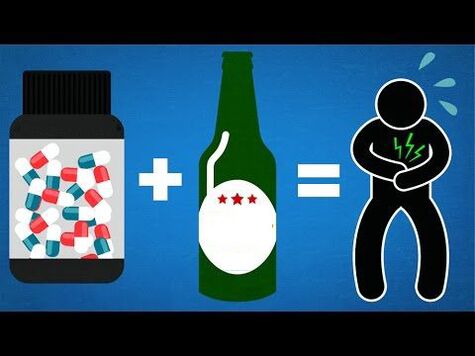
Combined with strong drinks, they have a depressing effect on the central nervous system. For example, people treated with antimicrobial drugs complain of dizziness, weakness, drowsiness, and seizures. This condition is especially dangerous if the person is away from home.
Doctors point out that the ban on taking alcoholic products is not limited to a glass of vodka or brandy (it is recommended to forget about both wine and beer for a while when taking antibiotics). Ethyl alcohol is found in other foods and medicines, so if you need to take more than one medicine, make sure it does not contain alcohol. Similarly, restrictions should be followed regardless of the dosage form of the drug - tablets, syrup or external ointment.
What happens if you consume antibiotics and alcohol: Undesirable consequences
It is often heard that some acquaintances practiced alcoholism and antibiotic intake, and there was nothing wrong with such a dubious combination. But no one knows what happened in that person’s body and how things went on with his health. But in medical practice, many cases have been reported where the combination of an intoxicating drink and medication resulted in:
- liver injury;
- severe damage to the brain and central nervous system (headache, dizziness, nausea, vomiting, convulsions);
- sleep problems;
- the development of diseases of the gastrointestinal tract;
- painful feelings in the abdomen;
- negative skin reactions (redness, rash);
- increase in blood pressure, decreased heart activity;
- anaphylactic shock.
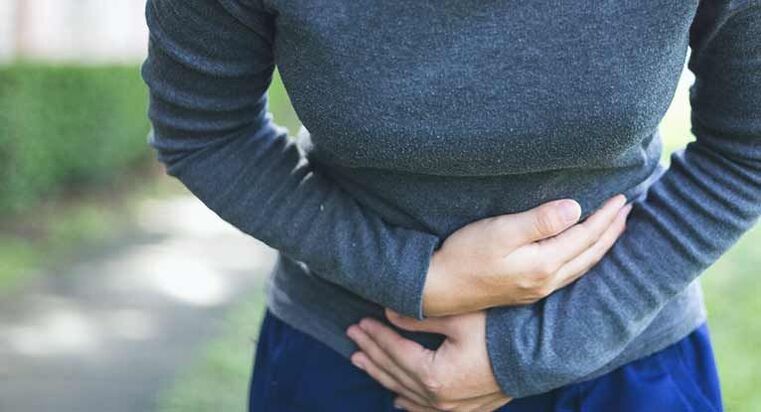
Another important aspect to look out for is when to start drinking alcohol after taking antibiotics. At the end of therapy, it is advisable to stand for a few more days before opening a bottle of your favorite wine or brandy. This is due to the fact that it takes some time to remove the breakdown products of the medicine from the body (these periods vary for different medicines, you can get detailed information from your doctor or instructions).
Why is there a strong belief that alcohol and antibiotics should not be mixed?
It is not desirable to use alcohol with many drugs, and not just antimicrobials. Why has the combination with antibiotics always been strictly banned?
Two historical theories explain why physicians have always advocated a total rejection of intoxicants during antibiotic therapy.
| Prevention of sexually transmitted diseases | Penicillin deficiency during the war |
There is an opinion that venereologists were the first to introduce a categorical ban on alcohol consumption during antibiotic treatment. During the cure, the loving patients drank and imaginatively went to the priestesses of love again. In order to prevent patients from becoming re-infected, doctors scared their wards of using alcohol and antibiotics to pose a death risk. |
During the war, penicillin was needed in huge quantities and was lacking. Therefore, the valuable drug had to be extracted from the urine of soldiers receiving antibiotic therapy. Urine was taken from the patients, from which the antibiotic was re-isolated. Due to alcohol consumption (healing soldiers were allowed to drink beer), the production of penicillin was difficult. Therefore, a total ban on drinking was introduced for all those who were shown antibiotics. |
Summary for those thinking about consuming alcohol while taking antibiotics
- Studies have shown that alcohol does not significantly affect the effectiveness of most modern antibacterial drugs. However, there is a list of medications that are strictly forbidden to take with any strong drink.
- Although experts are divided on the compatibility of alcoholic beverages and antibacterial agents (except for drugs for which restrictions are categorical), most of them tend to think that it is better for a patient to refuse alcohol during treatment. However, you should know that if you are still drinking a glass of wine during therapy, you should not refuse to take the next antibiotic (again, if this is a drug for which there is no clear contraindication to alcohol).
To ensure that the antibiotic does not belong to the group of medicines that cannot be combined with alcoholic beverages, ask your doctor and read the instructions carefully.































